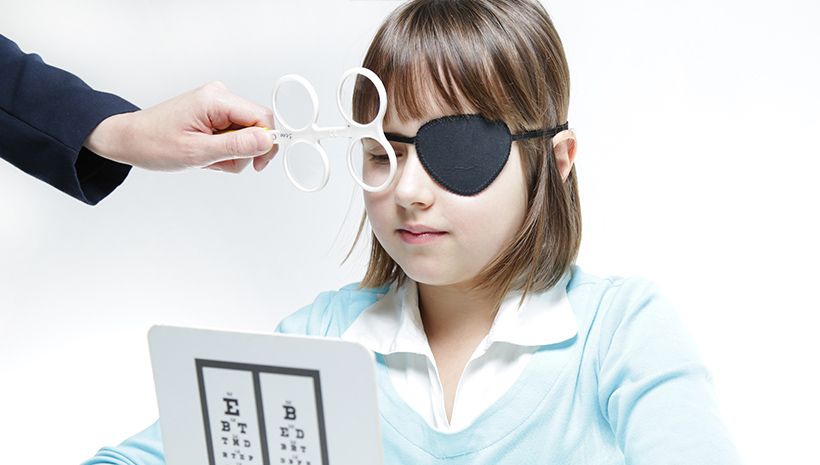




Services
Eye Care Services In Holly Springs, NC
We offer a wide variety of eye care services to the Holly Springs community. Contact us with any questions about our services.

Comprehensive Eye Exams
Comprehensive eye exams, performed annually by an eye doctor, are an important part of preventative health care, as early diagnosis and treatment of eye and vision problems can help prevent vision loss.

Pediatric Eye Exams
Many schools and pediatricians offer vision screenings, but these “screenings” should not be substituted for a complete eye examination, as their results can be inaccurate.

Contact Lens Exams
A comprehensive eye examination does NOT include a contact lens examination. If you are interested in wearing contact lenses, please let staff at Family Eye Wellness know prior to booking your appointment.

Functional/Binocular Vision Evaluation
At Family Eye Wellness, we go beyond the routine comprehensive eye exam – we provide specialty exams known as functional or binocular vision evaluations

Visual Information Processing
More than 70% of a child’s learning is done through their visual system. Studies show that 1 out of every 4 children have a vision problem that impacts learning.

Vision Therapy
Vision therapy is an individualized and supervised treatment program designed to correct visual-motor and visual perceptual deficiencies in both children and adults.

Myopia Management
Myopia (or nearsightedness) is a very common condition where objects that are close to you are clear, however, objects far away are blurry.

InfantSee
Family Eye Wellness is proud to announce that Dr. Patel is a long-time provider for the InfantSee program, which is a public health program managed by Optometry Cares- The AOA Foundation.

Ambylopia
At Family Eye Wellness, Dr. Patel and our team specialize in helping individuals overcome amblyopia, commonly known as "lazy eye," through personalized treatments.

Syntonics
"Syntonics," derived from the word syntony (meaning to bring into balance), refers to achieving a balanced, integrated nervous system.

Computer Vision
Computer Vision is a relatively new term within the optometry field and refers to eye problems associated with the prolonged use of computers and electronics that utilize a digital screen.

Dry Eye Management
While dry eye isn’t a serious condition, it can have a major impact on your quality of life. You may find your eyes get tired faster or you have difficulty reading.

Macular Degeneration
Macular degeneration, commonly referred to as age-related macular degeneration (AMD), is the single largest cause of sight loss in the developed world and affects more than 10 million Americans.

Cataracts
If you’ve been diagnosed with cataracts, you may wonder if cataract surgery is right around the corner. Not to worry. There are many preventive steps you can take to slow the progression of cataracts and preserve your vision.

Eye Emergencies
Eye emergencies cover a range of incidents and conditions such as; trauma, cuts, scratches, foreign objects in the eye, burns, chemical exposure, photic retinopathy, and blunt injuries to the eye or eyelid.

Glaucoma
If you’ve been diagnosed with glaucoma, you’re probably already familiar with the typical options in glaucoma treatment – eye drops, laser treatment or traditional surgery.

Digital Retina Imaging
Using a digital camera system, our optometrists at Family Eye Wellness can clearly see and examine your retina, located at the back of your eye.

Ocular Disease Management
Both optometrists and ophthalmologists treat many common types of ocular disease. However, for the best outcome, it’s important to see an eye doctor regularly. They can identify any issues before they become serious problems.

Diabetic Related Eye Exam
You have almost certainly heard of diabetes, which is one of the most common chronic health conditions in the United States with an estimated 100 million adults currently living with diabetes or pre-diabetes.

Migraine & Light Sensitivity Relief
Do you suffer from frequent migraines or find yourself overwhelmed by bright lights, computer screens, or even indoor lighting? Light sensitivity—also known as photophobia—is one of the most common and debilitating symptoms associated with migraines. But what many don’t realize is that your eyes and visual system often lie at the root of the problem.



Quick Links
Our Services
- Comprehensive Eye Exam
- Pediatric Eye Care
- Contact Lens Exams
- Functional/Binocular Vision Evaluation
- Visual Processing Evaluations
- Vision Therapy
- Myopia Management
- InfantSee
- Amblyopia
- Syntonics
- Computer Vision
- Dry Eye Management
- Macular Degeneration
- Cataracts
- Eye Emergencies
- Glaucoma
- Digital Retina Imaging
- Ocular Disease Management
- Diabetic Related Eye Exam
Contact Info
Hours of Operation
- Monday 9:30am - 5:00pm
- Tuesday 9:30am - 5:00pm
- Wednesday 9:30am - 5:00pm
- Thursday 9:30am - 5:00pm
- Friday 9:30am - 4:30pm
- Saturday Closed
- Sunday Closed
© 2025 Family Eye Wellness. All rights Reserved. Accessibility Statement - Privacy Policy - Sitemap
Powered by:
